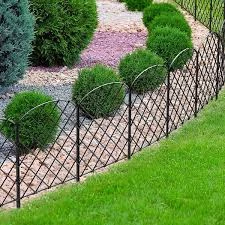The Versatility and Strength of Gabion Box Walls
Gabion box walls have become increasingly popular in recent years as a structural solution for various landscaping and engineering challenges. Originating from the Italian word gabbione, which means big cage, gabion boxes are wire mesh containers filled with rocks, stones, or other materials. They can be used in a multitude of applications, from retaining walls to decorative garden features, and offer significant advantages due to their versatility, environmental benefits, and strength.
Construction and Design
The construction of gabion box walls is relatively straightforward. Galvanized steel wire or PVC-coated mesh is used to create the boxes, which are then filled with durable stones or recycled materials. The design can be tailored to specific needs, including height, width, and shape, allowing for the construction of walls that blend aesthetically with natural surroundings. Additionally, gabion walls can be engineered to accommodate drainage needs, as the open grid allows water to flow through easily, reducing hydrostatic pressure and leading to improved stability.
Applications
One of the primary uses of gabion box walls is in civil engineering, particularly as retaining structures
. They are ideal for managing soil erosion on slopes and adding structural integrity to terraced landscapes. In residential settings, they can act as garden walls, paths, and seating areas, all while providing a unique rustic aesthetic. Due to the flexibility in design, gabion walls can be created in various shapes and sizes to suit the user's requirements, making them a practical choice for landscaping projects.gabion box wall

Gabion walls are also employed for flood control and bank stabilization along rivers and streams. Their porous nature allows for effective water drainage during heavy rainfalls, thus preventing flooding and minimizing erosion. In areas prone to landslides, gabion structures can help stabilize the soil, holding back the earth and creating a safer environment.
Environmental Benefits
From an environmental perspective, gabion box walls offer significant advantages. They are often constructed using local materials, which reduces transportation energy and costs. Furthermore, they can be filled with recycled stones or materials, promoting sustainability. The natural appearance of gabion walls enables them to blend into landscapes without disrupting local ecosystems, often supporting biodiversity by providing habitats for small animals and plants.
Gabion walls also contribute positively to water management. Their design allows for efficient water drainage, which can help in aquifer recharge and controlling surface runoff. By using gabions, businesses and homeowners can contribute to more sustainable water management practices.
Conclusion
In summary, gabion box walls represent a flexible, sustainable, and effective solution for a variety of construction and landscaping needs. Their strength and adaptability make them suitable for both large-scale civil engineering projects and small residential gardens. With their unique aesthetic appeal and numerous environmental benefits, gabion walls are an excellent choice for anyone looking to combine functionality with style in outdoor spaces. Whether utilized for erosion control, flood management, or simply as a decorative feature, gabion box walls open up a world of possibilities for enhancing both the beauty and functionality of our landscapes. As environmental awareness continues to grow, the popularity of gabion walls and their sustainable characteristics will likely remain a prominent choice in the construction and landscaping industries.
















